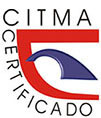Archipelagic memory. Jewish-Transnational confluences in and beyond the Caribbean
Keywords:
Jewish exile, Dominican Republic, Caribbean, archipelagic memory, ethnography, HaitiAbstract
ABSTRACT
Introduction: Aim of this article is to bring together interwoven imageries, discourses, and practices showing how they are constitutive of an archipelagic narrative of the Caribbean that is shifting to continental space.
Methods: I will convey an approach in which the past is remembered as a series of fragmentary spaces, cultures, and histories that converge in a fluid space. Following Glissant, the Caribbean is reciprocally «written» resulting in a Caribbean identity as a lived experience in an archipelagic world.
Results: The Caribbean islands were one of the few places of refuge for Jews fleeing the Nazi regime. Self-sufficient Jewish communities developed, and their Jewishness was entangled with the histories and memories of the islands. Drawing on descendants’ experience, I will reveal how a Caribbean narrative is defined and remembered.
Conclusions: Caribbean islands act here as a space of confluences, where the Caribbean is the point where different historical imaginaries meet multidirectionally, offering a possibility to understand violent histories and their legacy in today's world.
Downloads
References
ABELLA, I. Y TROPER, H. (1982). None is to many: Canada and the Jews of Europe 1933-1948. Toronto: Lester y Orpen Dennys.
BEHAR, R. (1995). Juban América. Poetics Today 16(1), 151-170.
BEHAR, R. (2013). An island called home. Returning to Jewish Cuba. New Brunswick: Rutgers University Press.
CORBETT, R. (Jan-Feb 1999). The ancient name of Haiti. A dialog From Bob Corbett’s Haiti list. Recuperado de http://www.hartford-hwp.com/archives/43a/171.html
CORRALES CAPESTANY, M. (2018). Cuba: A Paradise recovered for the Jews. GÓMEZ NAVIA, R. CHAILLOUX LAFFITA, G., WITNEY, R., CHANG PON, F. Y CORRALES CAPESTANY, M. (EDS.): De dónde son los cubanos. La Habana: Instituto Cubano del Libro, 199-244.
DAUSIEN, B. (2004). Biographieforschung. Theoretische Perspektiven und methodologische Konzepte für eine rekonstruktive Geschlechterforschung. BECKER, R. Y KORTENDIEK, B. (EDS.): Handbuch Frauen- und Geschlechterforschung: Theorie, Methoden, Empirie. Opladen: Leske y Budrich, 314-325.
DILLMANN, H.-U. Y HEIM, S. (2009). Fluchtpunkt Karibik. Jüdische Emigration in der Dominikanischen Republik. Berlin: Links Christoph Verlag.
DILLMANN, H.-U. (11 May 2006). Davidstern fürs Rathaus. Jüdische Allgemeine. Recuperado de https://www.juedische-allgemeine.de/allgemein/davidstern-fuers-rathaus/
DOBAL, C. (2009). The Spanish Inheritance in Dominican Culture. VEGA, B. (ED.): Dominican Cultures. The Making of a Caribbean Society. Markus Wiener Publishers, 37-86.
ESTEBAN DEIVE, C. (2009). The African Inheritance in Dominican Culture. VEGA, B. (ED.): Dominican Cultures. The Making of a Caribbean Society. Markus Wiener Publishers, 87-130.
FEIERSTEIN, L. R. (2016). Einleitung. Münchner Beiträge zur Jüdischen Geschichte und Kultur 10(2), 7-9.
FEIERSTEIN, L. R. (2016b). Im Land von Vitzliputzli. Aspekte der Geschichte deutschsprachiger Juden in Lateinamerika. Münchner Beiträge zur Jüdischen Geschichte und Kultur 10(2), 359-373.
GARCÍA-PEÑA, L. (2016). The Borders of Dominicanidad: Race, Nation and the Archives of Contradiction. Durham: NC: Duke University Press.
GILAD, M. (22 July 2013). A Jewish refuge on Caribbean Shores. Haaretz. Recuperado de https://www.haaretz.com/jewish/.premium-fleeing-the-nazis-to-the-caribbean-1.5298274
GILROY, P. (1993). The Black Atlantic Modernity and Double Consciousness. Verso Books.
GLISSANT, È. (1997). Traité du Tout-Monde. Poétique IV. Paris: Gallimard.
GLISSANT, É. (2009). Philosophie de la Relation: Poésie en étendu. Paris: Gallimard.
GLISSANT, É. (2021). Philosophie der Weltbeziehung. Poesie der Weite. Wunderhorn.
HAYES DE KALAF, E. (2021). Legal Identity, Race and Belonging in the Dominican Republic. From Citizen to Foreigner. Anthem Press.
HIRSCH, M. (2008). The Generation of Postmemory. Poetics Today 29(1), 103-128.
HOWARD, D. (2001). Coloring the Nation: Race and Ethnicity in the Dominican Republic. Oxford: Signal Books Limited y Boulder: Lynne Rienner Publishers.
HUMAN RIGHTS WATCH (HRW) (2019). World Report 2019: Haiti. Recuperado de https://www.hrw.org/world-report/2019/country-chapters/haiti
JÜDISCHES MUSEUM BERLIN (JMB) (2006). Heimat und Exil. Emigration der Deutschen Juden nach 1933. Frankfurt: Jüdischer Verlag im Suhrkamp Verlag.
JOSEPH, M. (2020). Islands, history, decolonial memory. Island Studies Journal 15(2), 193-200.
KABIR, A. J. (2020). Creolization as balancing act in the transoceanic quadrille: Choreogenesis, incorporation, memory, market. Atlantic Studies (17) 1, 135-157.
KAPLAN, D. E. (2001). The Jews in Cuba since the Castro Revolution. The American Jewish Year Book 101(2001), 21-87.
KAPLAN, M. (2008). A very Modest Experiment – The Jewish Refugee Settlement in Sosúa, 1940-1945. The Leo Baeck Institute Year Book 53(1), 127-155.
KAPLAN, M. (2010): Zuflucht in der Karibik. Die jüdische Flüchtlingssiedlung in der Dominikanischen Republik. 1940-1945. Göttingen, Wallstein Verlag.
KRAKOVER, S. (2013). Generation of a tourism product: Jewish heritage in Spain. Enlightening Tourism. A Pathmaking Journal 3(2), 142–168.
KROHN-HANSEN, C. (2009). Political Authorianism in the Dominican Republic. New York: Palgrave Macmillan.
KUHN, A. (2000). A Journey Through Memory. RADSTONE, S. (ED.): Memory and Methodology. Oxford y New York.
KUSENBACH, M. (2008). Mitgehen als Methode. Der «Go Along» in der phänomenologischen Forschungspraxis. RAAB, J., PFADENHAUER, M., STEGMAIER, P., DREHER, J. Y SCHNETTLER, B. (EDS.): Phänomenologie und Soziologie. Theoretische Positionen, aktuelle Problemfelder und empirische Umsetzungen. Wiesbaden: VS Verlag, 349–358.
MANNHEIM, K. (1970). Das Problem der Generationen (1928/29). WOLFF, K. H. (ED.): Karl Mannheim. Wissenssoziologie. Auswahl aus dem Werk. Neuwied y Berlin: Luchterhand, 509–565.
METZ, A. (1990). Why Sosúa? Trujillo’s motives for Jewish refugee settlement in the Dominican Republic. Contemporary Jewry 11(1), 3-28.
MIRVIS, S. (2020). Jewish Treasures of the Caribbean. Essays by Stanley Mirvis. Arizona State University.
MOYA PONS, F. (1998). The Dominican Republic. A national history. Princeton: Markus Wiener Publishers.
NEWMAN, J. (2019). Nearly the new world. The British West Indies and the flight from Nazism, 1933-1945. Berghahn Books.
RAJKOMAR, S., RAIMONDI, L. Y MURDAY, L. (2022). Archipelagic Memory: Intersecting Geographies, Histories and Disciplines. Recuperado de https://archipelagicmemory.wordpress.com/
REYNEL AGUILERA, C. (2019). ¿El Soviet caribeño? La otra historia de la Revolución cubana. Editorial Lendel.
ROTHBERG, M. (2021). Multidirektionale Erinnerung. Holocaustgedenken im Zeitalter der Dekolonialisierung. Berlin: Metropol.
SAINT-JEAN, A. (2018). Kiskeya Is a Term That Belongs to Both Dominicans and Haitians. Remezcla. Recuperado de https://remezcla.com/features/culture/kiskeya-for-short/
SCHEIB, A. (2012). Curaçao Virtual Jewish Virtual History Tour. Recuperado de https://www.jewishvirtuallibrary.org/curacao-virtual-jewish-history-tour
SHOAFF, J. L. (2016). The Right to a Haitian Name and a Dominican Nationality. La Sentencia (TC 168-13) and the Politics of Recognition and Belonging. Journal of Haitian Studies 22 (2), 58–82.
TOLTZ, J. (30 July 2017). Loss, trials, and compassion: the music of Australia’s Jewish refugees. The Conversation. Recuperado de https://theconversation.com/loss-trials-and-compassion-the-music-of-australias-jewish-refugees-81555
VEGA, B. (1985). Nazismo, Fascismo y Falangismo en la República Dominicana. Santo Domingo: Fundación Cultural Dominicana.
WEGENER, S. (2013). Zuflucht in einem fremden Land. Exil in Uruguay 1933-1945. Hamburg y Berlin: Assoziation A.
WELLS, A. (2009). Tropical Zion. General Trujillo, FDR, and the Jews of Sosúa. Durham: Duke University Press.
WOLF, M. (2014). Survival in Paradise. Sketches From a refugee life in Curaçao. iUniverse.
ZOBOI, I. (2018). Haiti and the Dominican Republic Share a Common Hero: Anacaona. Remezcla. Recuperado de https://remezcla.com/features/culture/haiti-and-the-dominican-republic-share-a-common-hero-anacaona/
Downloads
Published
How to Cite
Issue
Section
License
Copyright (c) 2023 Sarah Nimfuehr

This work is licensed under a Creative Commons Attribution-NonCommercial 4.0 International License.
Usted es libre de:
Compartir — copiar y redistribuir el material en cualquier medio o formato
Adaptar — remezclar, transformar y construir a partir del material
La licenciante no puede revocar estas libertades en tanto usted siga los términos de la licencia
Bajo los siguientes términos:
Usted es libre de:
Atribución — Usted debe dar crédito de manera adecuada, brindar un enlace a la licencia, e indicar si se han realizado cambios. Puede hacerlo en cualquier forma razonable, pero no de forma tal que sugiera que usted o su uso tienen el apoyo de la licenciante.
NoComercial — Usted no puede hacer uso del material con propósitos comerciales.
No hay restricciones adicionales — No puede aplicar términos legales ni medidas tecnológicas que restrinjan legalmente a otras a hacer cualquier uso permitido por la licencia.


















